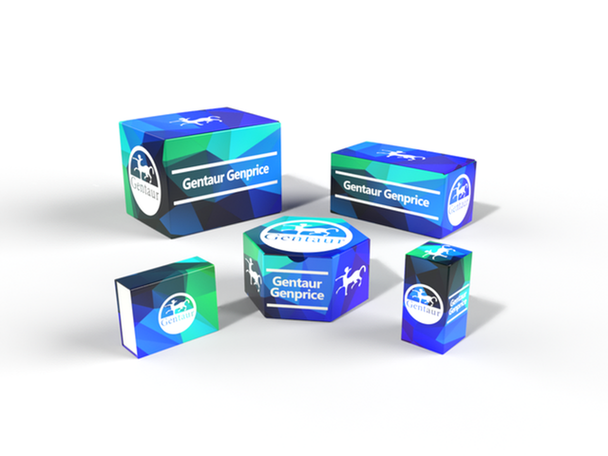Description
PDHX Antibody | 22-212 | Gentaur UK, US & Europe Distribution
Host: Rabbit
Reactivity: Human, Mouse, Rat
Homology: N/A
Immunogen: Recombinant fusion protein containing a sequence corresponding to amino acids 1-300 of human PDHX (NP_003468.2) .
Research Area: Cancer, Signal Transduction
Tested Application: WB, IF
Application: WB: 1:500 - 1:2000
IF: 1:10 - 1:100
Specificiy: N/A
Positive Control 1: SW620
Positive Control 2: HepG2
Positive Control 3: U-251MG
Positive Control 4: MCF7
Positive Control 5: Mouse heart
Positive Control 6: Mouse testis
Molecular Weight: Observed: 54kDa
Validation: N/A
Isoform: N/A
Purification: Affinity purification
Clonality: Polyclonal
Clone: N/A
Isotype: IgG
Conjugate: Unconjugated
Physical State: Liquid
Buffer: PBS with 0.02% sodium azide, 50% glycerol, pH7.3.
Concentration: N/A
Storage Condition: Store at -20˚C. Avoid freeze / thaw cycles.
Alternate Name: PDHX, E3BP, OPDX, PDX1, proX, DLDBP, pyruvate dehydrogenase complex, component X, E3-binding protein, lipoyl-containing component X
User Note: Optimal dilutions for each application to be determined by the researcher.
BACKGROUND: The pyruvate dehydrogenase (PDH) complex is located in the mitochondrial matrix and catalyzes the conversion of pyruvate to acetyl coenzyme A. The PDH complex thereby links glycolysis to Krebs cycle. The PDH complex contains three catalytic subunits, E1, E2, and E3, two regulatory subunits, E1 kinase and E1 phosphatase, and a non-catalytic subunit, E3 binding protein (E3BP) . This gene encodes the E3 binding protein subunit; also known as component X of the pyruvate dehydrogenase complex. This protein tethers E3 dimers to the E2 core of the PDH complex. Defects in this gene are a cause of pyruvate dehydrogenase deficiency which results in neurological dysfunction and lactic acidosis in infancy and early childhood. This protein is also a minor antigen for antimitochondrial antibodies. These autoantibodies are present in nearly 95% of patients with the autoimmune liver disease primary biliary cirrhosis (PBC) . In PBC, activated T lymphocytes attack and destroy epithelial cells in the bile duct where this protein is abnormally distributed and overexpressed. PBC eventually leads to cirrhosis and liver failure. Alternative splicing results in multiple transcript variants encoding distinct isoforms.






